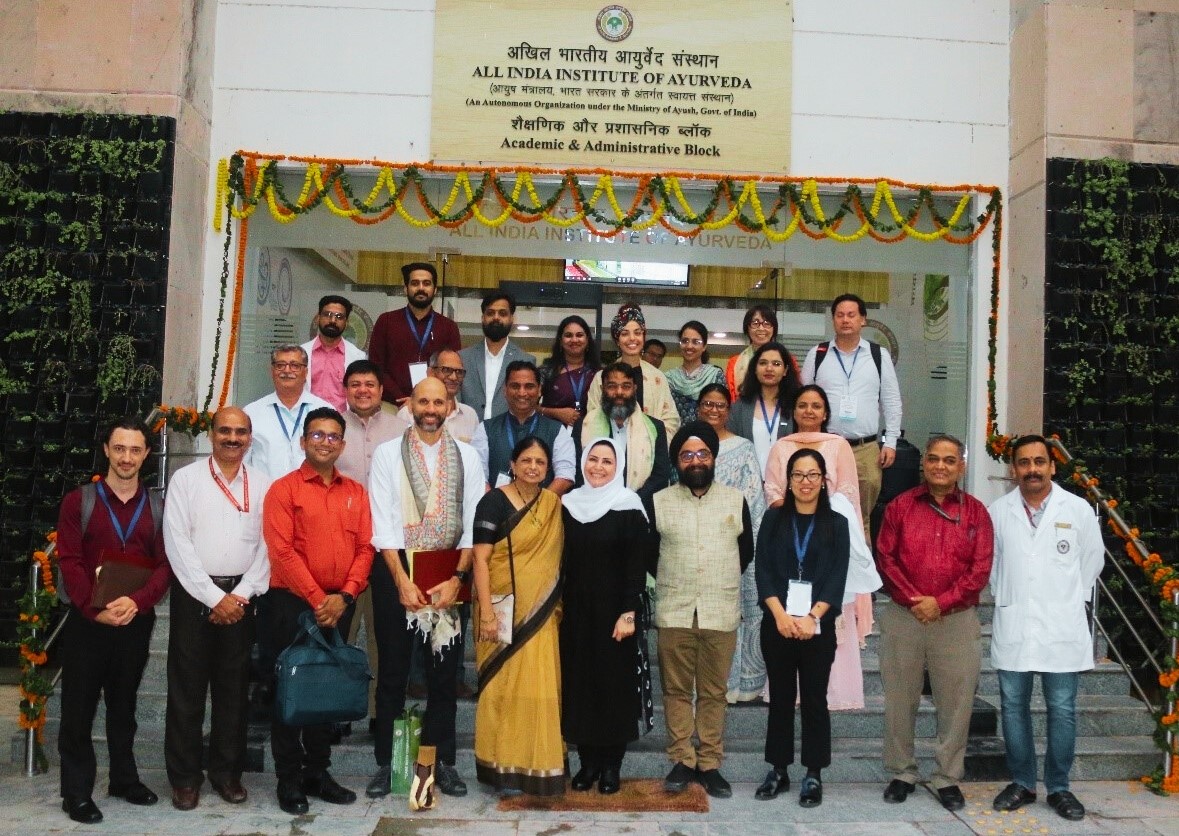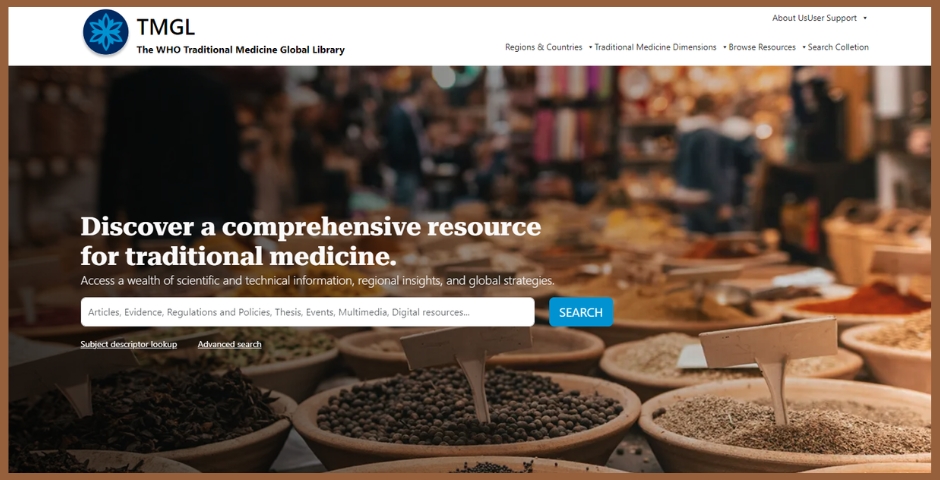On September 11 and 12, BIREME Director João Paulo Souza participated in a global technical meeting organized by the World Health Organization (WHO) with the Department of Digital Health and Innovation on the application of artificial intelligence (AI) in traditional medicine. The meeting, hosted by the All India Institute of Ayurveda (AIIA) in New Delhi, India, brought together 60 participants from 15 countries to discuss how AI can contribute to the dissemination and safe use of traditional health practices.
The program included strategic topics that support and advance the development of the WHO Traditional Medicine Global Library (TMGL), which is coordinated by BIREME. “The TMGL is a specialized digital library designed to promote health and well-being by providing access to scientific and technical information on traditional, indigenous, complementary and integrative medicines for health professionals and practitioners of traditional medicine, policy-makers, researchers and the general public,” said João Paulo Souza, Director of BIREME.
In addition to being a repository of this information, the TMGL will enable the registration of specialized scientific journals, local scientific, technical and policy productions, as well as the confidential deposit of traditional knowledge, with the aim of protecting the intellectual property of this knowledge by indigenous populations and local communities. This is a joint project of two specialized centers, BIREME and the WHO Global Center for Traditional Medicine (GTMC).

Agile development
According to the Director of BIREME, it is important to note that TMGL is BIREME’s first information product being developed using the Scrum approach. “In this agile approach, development takes place in a participatory, incremental and user-centred way, with monthly releases of new features,” says Souza. Version 0.1 (alpha) will be launched on 31 October 2024, and the first full version (1.0) will be launched during the WHO’s Second Global Summit on Traditional Medicine, scheduled for November 2025.
The TMGL will consist of a global portal, six regional portals for the WHO regions and 194 country-specific pages. According to the project, this structure will allow information on traditional, indigenous, complementary and integrative health practices to be integrated with conventional health practices, providing an accessible global platform based on scientific evidence. “The Scrum approach allows the library’s content and functionalities to be built with the active participation of a community of users and testers, ensuring that regional and cultural needs are respected,” the Director emphasised.
Artificial inteligence applications
In João Paulo Souza’s view, “the future of information products will be largely conversational, interactive and largely audiovisual”. In this sense, BIREME’s research and development activities have advanced in the use of Large Language Models (LLMs), which allow a more natural and easier interaction with scientific and technical information. As BIREME’s developments are consolidated, they will be integrated into the Virtual Health Libraries and the TMGL.
These technological innovations and other methodological approaches will help to link ancestral knowledge with current health practices in an effective, safe and culturally appropriate way. Two focus discussion groups were held during the meeting in India to gather input from participants and define technical specifications that will be incorporated into the next versions of the TMGL.
Southeast Asia Regional Portal
In addition to his participation in the technical meeting, BIREME’s Director visited the WHO Regional Office for Southeast Asia (SEARO), where he met with the region’s focal point for traditional medicine, Dr. Pawan Godatwar, and Ms. Maki Kajiwara and Mr. Manjeet Saluja, from the WHO Global Traditional Medicine Centre (GTMC). The meeting aimed to discuss the development of the TMGL regional portal for Southeast Asia, one of the first regional portals to be implemented, alongside the Americas portal.
Invitation to the global community of users and testers
During the mission, João Paulo Souza also reiterated the invitation to global partners to join the TMGL Community, a group of users and testers who will have early access to the platform to provide feedback on its functionalities and content. The community has been invited to visit the website currently under development [click here to access], where they can follow monthly updates and participate in the project’s evolution. “The creation of this community is fundamental to ensure that TMGL meets the expectations and needs of its users, while respecting the regional and cultural specificities of each country,” he said.
The development of TMGL materializes BIREME’s digital transformation efforts, with advanced products and agile processes. According to the director, “digital transformation has two components: digital technology and agile work processes. The development of TMGL seeks to shape the digital transformation of technical cooperation, with the development of an information product centered on the needs of these projects, with incremental deliveries, and in an agile and participatory manner.”
